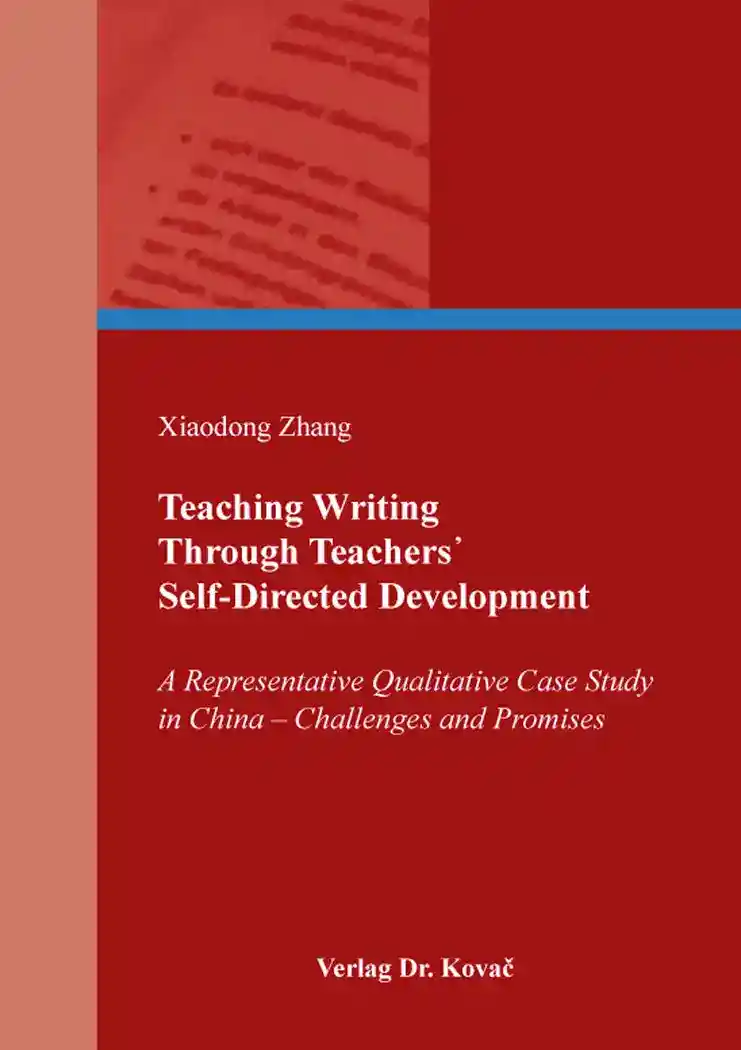Xiaodong ZhangTeaching Writing Through Teachers᾽ Self-Directed Development
A Representative Qualitative Case Study in China – Challenges and Promises
LINGUA – Fremdsprachenunterricht in Forschung und Praxis, Band 58
Hamburg 2020, 152 Seiten
ISBN 978-3-339-12076-2 (Print)
ISBN 978-3-339-12077-9 (eBook)
Zum Inhalt
It is typical for teachers to experience a lack of effective professional development at the institutional level. In this context, the practice that teachers have gained from their professional development may also insufficiently meet students’ needs. For example, in the context of English as a foreign language (EFL) writing instruction within Chinese universities, pre-service and in-service education seem to focus on the instruction of writing at the level of language form (i.e., morpho-syntactic features). This is also encountered in Chinese EFL writing teachers’ classrooms, where students are taught writing at the level of language form and they compose their writing accordingly. To counteract the shortcomings of professional development at the institutional level, this book profiles the role of teachers’ self-directed development (i.e., teachers’ self-empowered improvement of their teaching skills) in improving students’ learning. Informed by a qualitative case study approach, this book focuses on an EFL teacher’s self-directed development over one semester in a Chinese university, including his interactions with the students and the trajectory of his self-directed development (e.g., curriculum design and emotional regulation).
Through qualitative analysis of this teacher’s reflections, teacher-student interactions, students’ interviews and essays, as well as field notes collected over one semester, the study shows that the teacher experienced a dynamic trajectory in his self-directed development process. Relying on himself, he initially combined his understanding of writing as a meaning-making process with students’ prior knowledge about writing at the level of language form. He then designed his curriculum (including the use of additional resources) and enacted his mediated teaching in the classroom. In the process, he specifically drew on his previous teaching experiences and taught writing as a meaning-making process using implicit and inductive methods, which helped students circumvent potential challenges in digesting lessons about writing as a meaning-making process. In order to help meet students’ individual needs, the teacher also offered students out-of-class assistance through teacher-written feedback and after-class tutoring. In so doing, he had to grapple with and overcome his negative emotions arising from conflicts between his expectations and the students’ actual performance (e.g., students’ slow progress in applying new meaning-making knowledge in comparison with their in-class deconstruction of texts from the meaning-making perspective). Through the teacher’s constant self-adaptation, along with in and out-of-class assistance, his students eventually successfully transitioned from their previous form-focused writing practices and gradually became proficient in composing writing from a meaning-making perspective.
